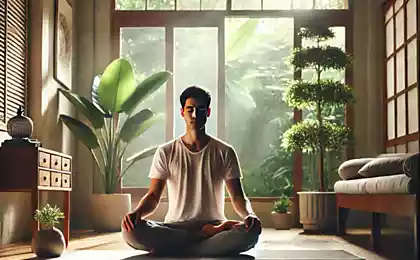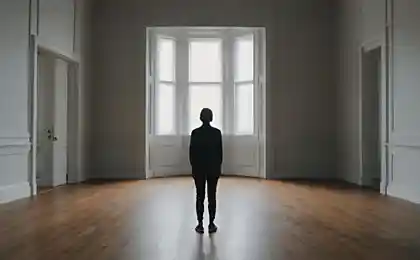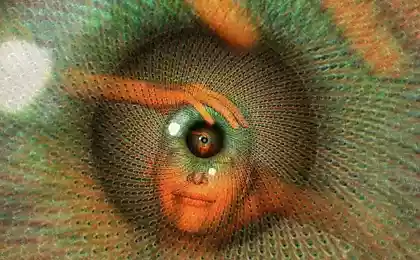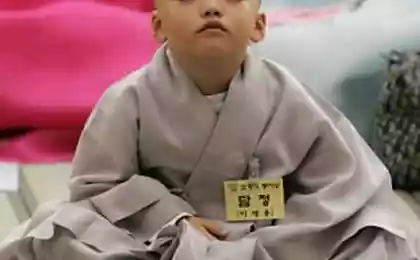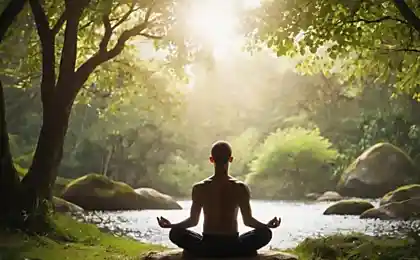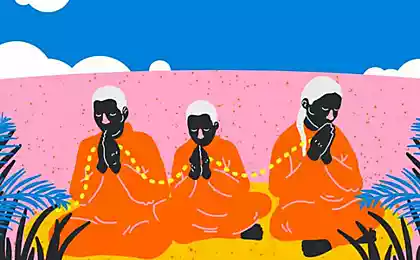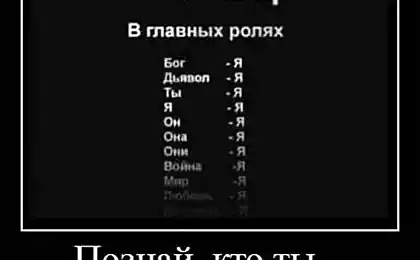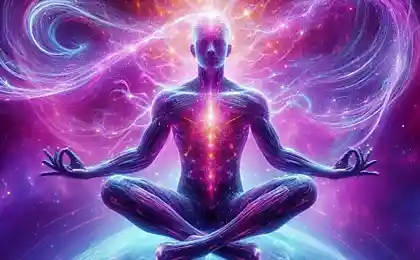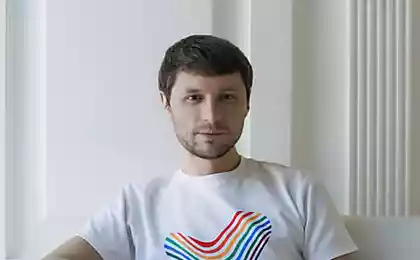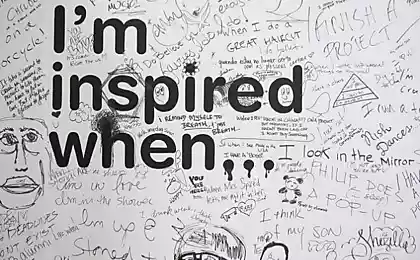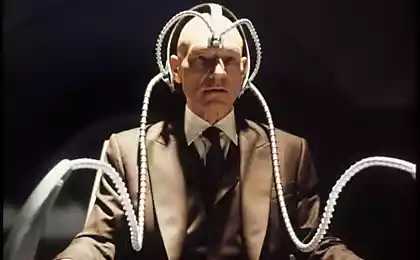251
The art of silence: how silence affects the psyche and creativity
Research on the benefits of meditation, examples of famous writers and scientists who practiced solitude, and practical exercises for readers.

Introduction: Why is silence so important?
In today’s world, we are constantly surrounded by noise – whether it’s the sound of city traffic, the background music in a store or the continuous news feed on a smartphone. Amid this cacophony, not only the sounds of nature are lost, but also our own possibility. hear. Research in psychology and neuroscience is increasingly indicating that moments of silence are necessary for emotional balance. creative inspiration.
Imagine that you are an instrument that continuously sounds without pause. Even the most harmonious chord will eventually cease to bring pleasure if you do not let it quiet down. Similarly, our brains need “silent respite” to process information, reboot and form new ideas.
The effect of silence on the psyche: scientific discoveries
Many studies (for example, the work of scientists from Nature) indicate that systematic silence improves emotional state and stimulates cognitive function.
Great solitary minds: examples from history
Many writers They consciously chose solitude to increase concentration and depth of thought. For example:

Meditation and Internal Silence
Practicing meditation is one of the most effective ways to get in touch with silence, even in a noisy environment. There are many techniques available, from classical concentration on breathing to more complex types of mindfulness. All of them help to “turn off” external noise and plunge into the state. "mental lull".
Meditation does not necessarily mean long hours in the lotus position. Even short 5-10-minute sessions can significantly improve well-being and give impetus to creative insight. Regular practice develops the ability to self-observe and control emotions. As a result, a person recovers faster from stress and finds non-standard solutions easier.
Practical exercises for finding silence
You can try incorporating a few simple techniques into your daily routine to help you feel. "art of silence":

How does silence stimulate creativity?
When we talk about creativityWe often imagine a chaotic storm of ideas. However, for new thoughts to really take shape, the brain needs space and calm. It is in silence that the subconscious mind can “assemble a puzzle”, digesting previously received information and building unexpected connections.
There is an opinion that “genius is born in silence”, because it is there that we hear the “inner voice”, not the noise of the outside world. In silence, we free ourselves from socially dictated patterns and clichés and let free flow of thought.
Silence as a Resource for the Soul and Mind
The art of silence is not reduced to the banal “just to be silent”. This is a profound process. self-observation and reconstruction internal resources. Silence helps to find new meanings, restore emotional balance and release creativity. In the era of information overload, such a resource becomes increasingly valuable.
Try to incorporate regular silent practices into your life, whether it’s a short-term meditation, a walk without music, or a digital detox. The results may be surprising: concentration will increase, stress levels will decrease, and perhaps it is in silence that people will come to you. keynoteThey will change your life for the better.

Introduction: Why is silence so important?
In today’s world, we are constantly surrounded by noise – whether it’s the sound of city traffic, the background music in a store or the continuous news feed on a smartphone. Amid this cacophony, not only the sounds of nature are lost, but also our own possibility. hear. Research in psychology and neuroscience is increasingly indicating that moments of silence are necessary for emotional balance. creative inspiration.
Imagine that you are an instrument that continuously sounds without pause. Even the most harmonious chord will eventually cease to bring pleasure if you do not let it quiet down. Similarly, our brains need “silent respite” to process information, reboot and form new ideas.
The effect of silence on the psyche: scientific discoveries
Many studies (for example, the work of scientists from Nature) indicate that systematic silence improves emotional state and stimulates cognitive function.
- Reducing stress: In moments of absolute silence, the level of cortisol (stress hormone) decreases, which positively affects the nervous system.
- Increased concentration: Rest without external stimuli strengthens the ability to long-term concentration.
- Creativity development: Silence gives the brain space for “internal dialogues,” leading to fresh ideas and concepts.
Great solitary minds: examples from history
Many writers They consciously chose solitude to increase concentration and depth of thought. For example:
- Nikola Tesla.He often secluded himself in his lab, avoiding the noise of the metropolis, which allowed him to generate innovative ideas.
- Henry David Thoreau.Walden glorified living alone on the shore of a pond, proving that silence is the source of wisdom.
- Virginia WoolfThe writer emphasized the importance of “own room” (hence the title of her essay) for the creative process.
- Albert EinsteinHe often went on long walks and silent reflections, giving rise to theories that change our view of the universe.

Meditation and Internal Silence
Practicing meditation is one of the most effective ways to get in touch with silence, even in a noisy environment. There are many techniques available, from classical concentration on breathing to more complex types of mindfulness. All of them help to “turn off” external noise and plunge into the state. "mental lull".
Meditation does not necessarily mean long hours in the lotus position. Even short 5-10-minute sessions can significantly improve well-being and give impetus to creative insight. Regular practice develops the ability to self-observe and control emotions. As a result, a person recovers faster from stress and finds non-standard solutions easier.
Practical exercises for finding silence
You can try incorporating a few simple techniques into your daily routine to help you feel. "art of silence":
- Minute break. Stop once an hour, close your eyes and focus on breathing. Try not to think about anything specific.
- Conscious hearing. Go out to the balcony or in the yard and try to record all the sounds around - the singing of birds, the rustling of leaves, the sound of the wind. Then find the quietest point, where the sounds are minimal, and “listen” to that silence.
- Detox from gadgets. Set up a “digital fast” for 1-2 hours a day when you’re not touching your phone or turning on music or TV. Dedicate this time to leisurely thinking or reading.
- Diary of Silence. Make notes of how you feel after periods of silence. Take note of any ideas that come up in your head at these moments.

How does silence stimulate creativity?
When we talk about creativityWe often imagine a chaotic storm of ideas. However, for new thoughts to really take shape, the brain needs space and calm. It is in silence that the subconscious mind can “assemble a puzzle”, digesting previously received information and building unexpected connections.
There is an opinion that “genius is born in silence”, because it is there that we hear the “inner voice”, not the noise of the outside world. In silence, we free ourselves from socially dictated patterns and clichés and let free flow of thought.
Silence as a Resource for the Soul and Mind
The art of silence is not reduced to the banal “just to be silent”. This is a profound process. self-observation and reconstruction internal resources. Silence helps to find new meanings, restore emotional balance and release creativity. In the era of information overload, such a resource becomes increasingly valuable.
Try to incorporate regular silent practices into your life, whether it’s a short-term meditation, a walk without music, or a digital detox. The results may be surprising: concentration will increase, stress levels will decrease, and perhaps it is in silence that people will come to you. keynoteThey will change your life for the better.
Black Holes: What Have We Learned in the Last 5 Years?
How to recognize manipulation: instructions from a psychologist
